Child Friendly Space inspiring positive change for children in rural communities
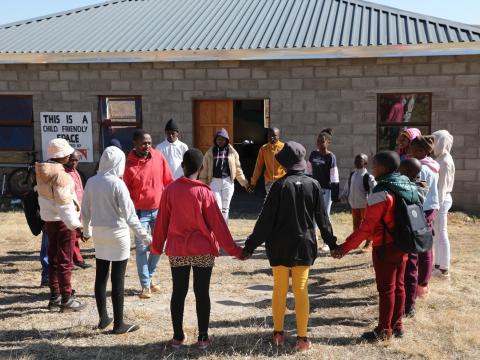
By: Lerato Brown, Communications and Marketing Manager, Lesotho
In the rural villages of Lesotho, children encounter numerous obstacles that affect their human rights, protection, safety, and overall well-being. Hunger and poverty, in particular, place a heavy burden on them, often driving them towards harmful behaviors such as drug and alcohol use. Consequently, they may engage in criminal activities, which can greatly impact their mental health. Moreover, child abuse and exploitation run rampant, leading to physical harm, trauma, social difficulties, and behavioral problems. Teenage pregnancies, frequently a consequence of girls being out of school or influenced by cultural norms, result in child marriages. Additionally, initiation schools contribute to boys dropping out of school, depriving them of valuable learning opportunities and hindering the pursuit of their dreams.
In these rural, hard-to-reach areas, children are often left behind in advocacy initiatives, awareness campaigns, and information channels that teach and empower them about their rights. Child-Friendly Spaces (CFS) are bridging this gap, ensuring no child is left behind. These safe havens are designed to support and protect children in emergency settings, providing them with a sanctuary where they can play, learn, and heal from trauma.
To address these issues faced by vulnerable Basotho children, World Vision Lesotho has developed eight Child-Friendly Spaces in Mpharane, Mokotjomela, Matelilie, Rothe, Sefikaneng, Malumeng, and Pitseng Area Programmes, with the Phamong Area Programme underway.
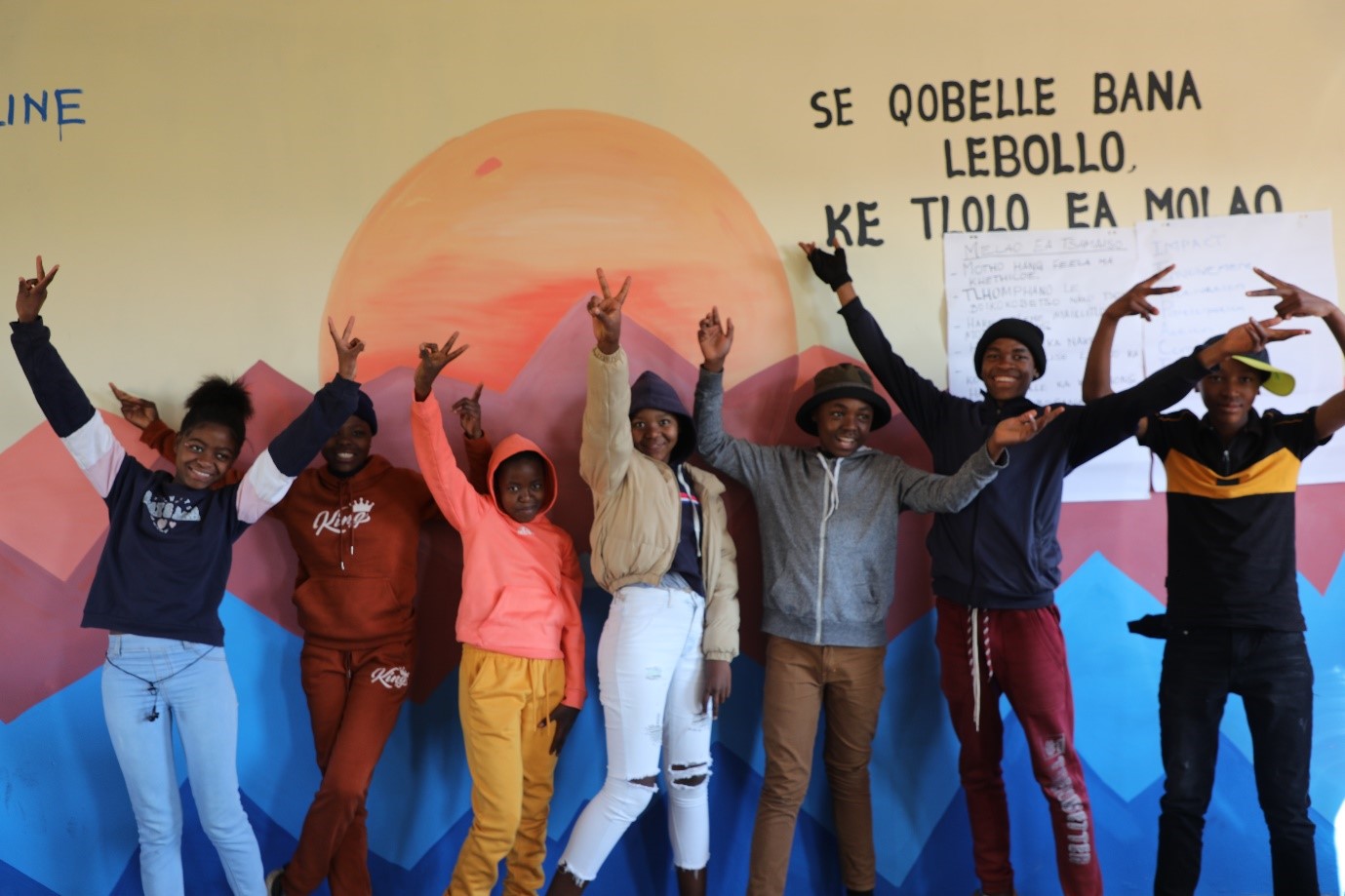
A visit to the CFS in Mafaleng village, Pitseng Area Programme sheds light on how these spaces inspire positive change for children in vulnerable communities. This CFS situated within Pontmain Health Centre became operational in February 2024 and has become a testament to the profound impact these safe havens have on vulnerable children.
Before the establishment of this CFS, the local environment in Mafaleng was fraught with danger for children. "Both boys and girls fell into the tragic trend of using drugs and alcohol for entertainment, and more boys were joining gangs, stealing, and robbing homes and shops in the community," shared Khothatso Mokete, the leader of the CFS. The community's deepest concern, he noted, was seeing young boys become perpetrators of sexual abuse and exploitation of their peers. For girls, the greatest plights were teenage pregnancy and child marriage.
Reitumetse, 18, revealed the challenges they faced regarding safety: "We didn't know how to report abuse and where to report it, so we would just ignore the abuse, including those of our peers." Tsebiso, also 18, added, "We used to laugh at our peers who were brave enough to share their stories of abuse because we didn't understand how serious these issues were." Kolobetso, 14, shared a tragic memory: "My friends and I used to play in dangerous places, not knowing the risks. In 2023, two of my friends drowned in the dam where we used to swim."
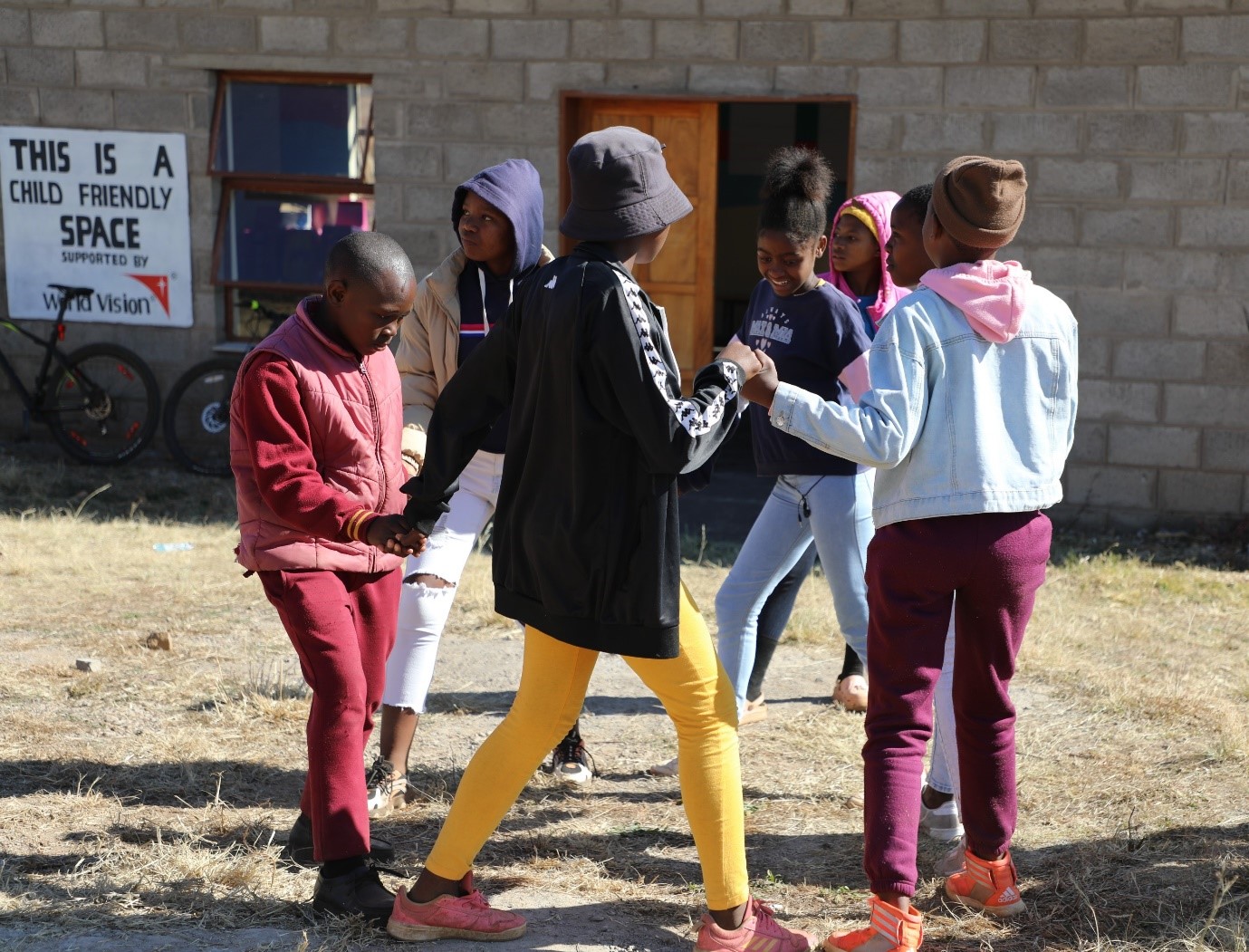
In just five months since its inception, the Mafaleng CFS has become a space of hope for the village children. "The place has become a home to us, a place we look forward to going to after school and on weekends," Kolobetso remarked. Reitumetse added, "I now know about different kinds of child abuse, my rights, and where to report abuse." Mokhatso, the leader of the CFS, highlighted its role in educating boys and girls on child protection, sexual reproductive health, and life skills, reinforcing good behavioural changes and offering psychosocial support.
Kolobetso appreciates having a safe space to play without risking her life. Thabiso, 18, loves the CFS because it has fostered better and more fulfilling friendships. "No matter what happens, we can always be there for each other and help report anything that is not right," he said.
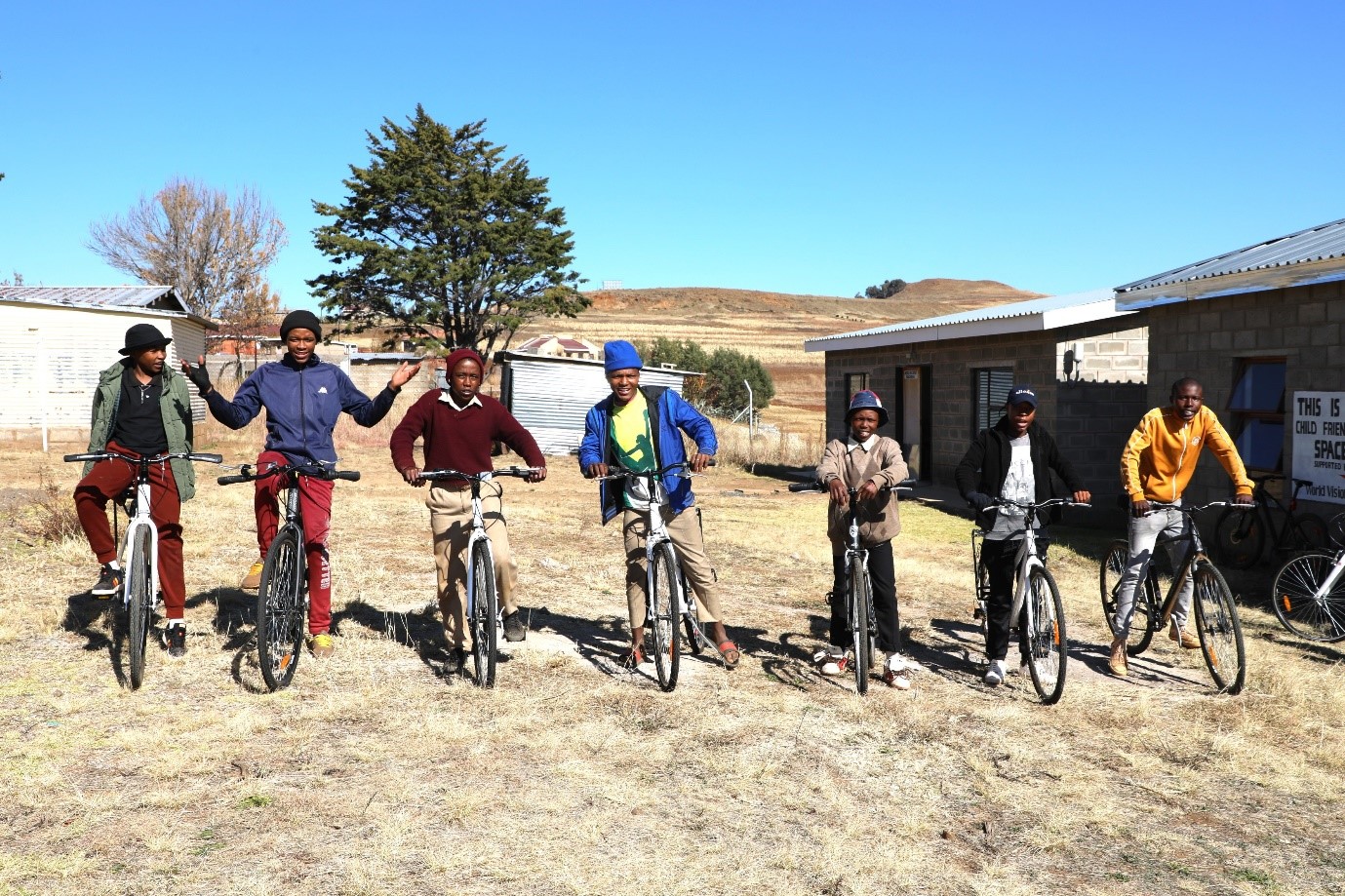
Lieketseng, 14, enjoys learning and playing, especially riding bicycles and engaging in motivational outdoor games. She shared, "We sing, laugh, and have so much fun."
Reitumetse expressed newfound confidence: "I feel more confident to speak up when someone does something wrong to me or my friends." Tsebiso noted a positive shift in his behaviour: "I am no longer interested in standing at the corners drinking alcohol and smoking." The CFS in Mafaleng now hosts 54 children aged between 12 and 18, each with a story of transformation and hope.
With the majority of children in Mafaleng village now part of the Child-Friendly Space, their spirit and determination are becoming a ripple of empowered and safe children throughout the Pitseng Area Programme in Leribe. These children, are doing away with their former life challenges, are now change agents in their village.
The aspirations of these children are as diverse as they are inspiring. Tsebiso dreams of becoming a minister to help needy people in his village. Reitumetse hopes to own a truck business in five years. Nthatuoa aspires to be a fashion designer, while Lieketseng wants to become a doctor to heal the sick.
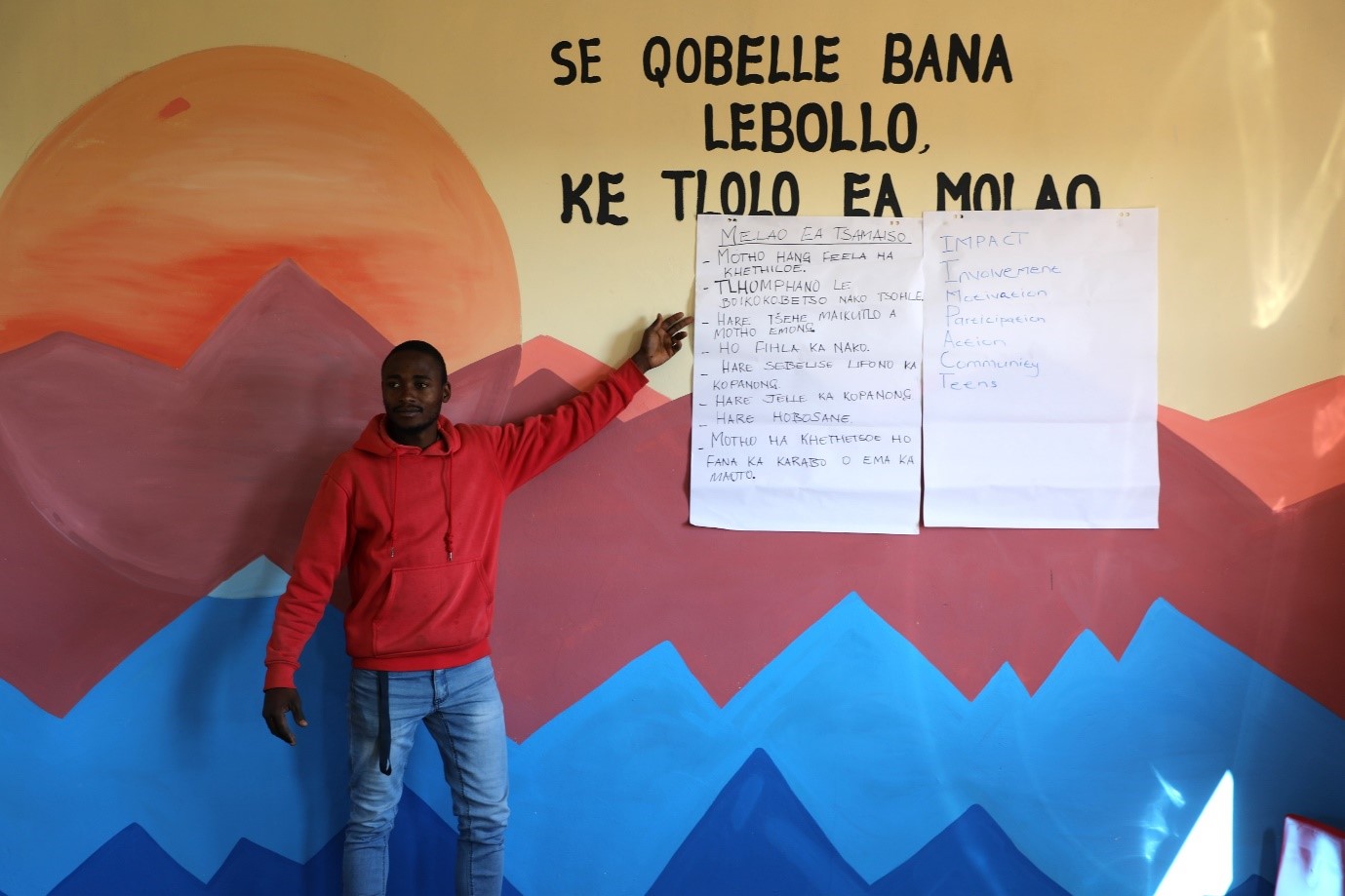
Khothatso envisions a future where more boys and girls can have CFS’s in their villages, becoming positive role models for their peers. "I want to see an increase in the number of children joining CFS’. These spaces are helping model a future generation of adults who will be respectful, loving, kind, confident, and mentally sound. My prayer is that one day there will be an end to all the abuse."
In Lesotho, where hunger, poverty, and lack of opportunities often lead children into harmful practices, the Child-Friendly Spaces offer an environment of hope. They not only provide a safe environment for children to play and learn but also help restore a sense of normality and continuity in their disrupted lives. By addressing the immediate and long-term needs of children, these spaces are building stronger, more resilient communities.